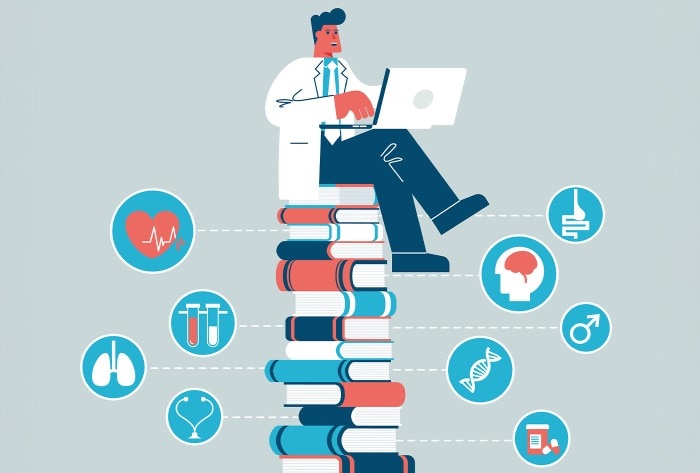MENU
FJ | FJD
-
-
-
- Forum Labo 2025
- Advanced Therapies Week (ATW) 2025
- SLAS Europe 2025
- Medlab Middle East 2025
- Biologics World Nordics 2025
- Bioprocessing Summit Europe 2025
- BioProcess International Europe 2025
- ASIA LABEX: The Lab Show 2025
- SLAS International 2025
- ISEV 2025
- Future Labs Live 2025
- Cell 2025
- ASIA LABEX: The Lab Show 2025
- Stem Cell Community Day 2025
-
-
-
- Forum Labo 2025
- Advanced Therapies Week (ATW) 2025
- SLAS Europe 2025
- Medlab Middle East 2025
- Biologics World Nordics 2025
- Bioprocessing Summit Europe 2025
- BioProcess International Europe 2025
- ASIA LABEX: The Lab Show 2025
- SLAS International 2025
- ISEV 2025
- Future Labs Live 2025
- Cell 2025
- ASIA LABEX: The Lab Show 2025
- Stem Cell Community Day 2025
FJ | FJD
-
- Benchtop Centrifuges
- Floor-Standing Centrifuges
- Refrigerated Centrifuges
- Microcentrifuges
- Multipurpose Centrifuges
- High-Speed Centrifuges
- Ultracentrifuges
- Concentrator
- High-Speed and Ultracentrifuge Consumables
- Centrifuge Tubes
- Centrifuge Plates
- Device Management Software
- Sample and Information Management
-
- All Pipettes, Dispensers & Automated Liquid Handlers
- Mechanical Pipettes
- Electronic Pipettes
- Multi-Channel Pipettes
- Positive Displacement Pipettes & Dispensers
- Automated Pipetting
- Bottle-Top Dispensers
- Pipette Controllers
- Pipette Tips
- Automation Consumables
- Dispenser & Pipette Accessories
- Automation Accessories
- Dispenser & Pipette Services
You are about to leave this site.
Please be aware that your current cart is not saved yet and cannot be restored on the new site nor when you come back. If you want to save your cart please login in into your account.
Sorry, we couldn't find anything on our website containing your search term.

Promising Studies of 2025
Beyond Science
- Lab Life
- Off the Bench
- Bright Minds
What is happening in terms of cancer vaccines, weight loss alternatives or psychotherapies? These six clinical studies inspire hope.
Each year, tens of thousands of clinical trials are conducted worldwide. Covering a broad spectrum of methods and questions, these studies have one common goal: generating medical knowledge that will help sick patients get better – or help healthy people not get sick in the first place. The following research proposals are examples of the great potential of this year’s medical research.
Read more
Read less
1) mRNA: preventative medicine against cancer
What is being studied?
BioNTech is one of many pharmaceutical companies that are testing a novel form of therapy against melanoma: an individual mRNA (messenger ribonucleic acid) is designed and generated for affected patients, and it is specific to the respective tumor DNA. Patients will receive this mRNA as a vaccine which is intended to elicit a targeted immune response against the tumor. The company published the first positive results in 2024, and more are expected this year.
What is the long-term goal?
Companies have been researching mRNA therapies for decades. It is possible that in the future, such therapies may be used to combat multiple types of cancer and other grave diseases – the hope is that higher precision, as well as higher efficacy, will be achieved than ever before.
What is being studied?
BioNTech is one of many pharmaceutical companies that are testing a novel form of therapy against melanoma: an individual mRNA (messenger ribonucleic acid) is designed and generated for affected patients, and it is specific to the respective tumor DNA. Patients will receive this mRNA as a vaccine which is intended to elicit a targeted immune response against the tumor. The company published the first positive results in 2024, and more are expected this year.
What is the long-term goal?
Companies have been researching mRNA therapies for decades. It is possible that in the future, such therapies may be used to combat multiple types of cancer and other grave diseases – the hope is that higher precision, as well as higher efficacy, will be achieved than ever before.
Read more
Read less
2) Treating and preventing psychoses with CBD
What is being studied?
The cannabis plant contains a series of active substances, among them cannabidiol (CBD). In a large-scale study, researchers at the University of Oxford are testing whether CBD may be used in cases of psychoses. In contrast to tetrahydrocannabinol (THC), CBD will elicit no psychoactive effects, and it is already approved for the treatment of severe epilepsy.
What is the long-term goal?
The symptoms of psychosis such as delirium, hallucinations or ego-destruction, are thus far being treated mainly with anti-psychotics and psychotherapy. However, in a proportion of patients, these treatments are not effective. In the future, CBD could present an additional treatment option, as well as offer possible prevention.
What is being studied?
The cannabis plant contains a series of active substances, among them cannabidiol (CBD). In a large-scale study, researchers at the University of Oxford are testing whether CBD may be used in cases of psychoses. In contrast to tetrahydrocannabinol (THC), CBD will elicit no psychoactive effects, and it is already approved for the treatment of severe epilepsy.
What is the long-term goal?
The symptoms of psychosis such as delirium, hallucinations or ego-destruction, are thus far being treated mainly with anti-psychotics and psychotherapy. However, in a proportion of patients, these treatments are not effective. In the future, CBD could present an additional treatment option, as well as offer possible prevention.
Read more
Read less
3) Neuroprostheses to counteract paralysis
What is being studied?
This year, a team at Tsinghua University in China is planning to equip 30 to 50 people suffering from paralysis with brain implants. These devices known as brain-computer interfaces (BCI) are wireless; they are placed above the sensorimotor cortex of the brain without touching it. They are meant to stimulate the brain in a targeted manner and allow the affected person to once again move their hands. A single-case study from the previous year has already shown that this technology can work.
What is the long-term goal?
Generally, it is the purpose of neuroprostheses to restore damaged nerve functions. The more sophisticated the technology, the broader the future areas of application will be.
What is being studied?
This year, a team at Tsinghua University in China is planning to equip 30 to 50 people suffering from paralysis with brain implants. These devices known as brain-computer interfaces (BCI) are wireless; they are placed above the sensorimotor cortex of the brain without touching it. They are meant to stimulate the brain in a targeted manner and allow the affected person to once again move their hands. A single-case study from the previous year has already shown that this technology can work.
What is the long-term goal?
Generally, it is the purpose of neuroprostheses to restore damaged nerve functions. The more sophisticated the technology, the broader the future areas of application will be.
Read more
Read less
4) A healthy diet – and AI helps with the analysis
What is being studied?
It could be so easy, but it is not. Even now, in the year 2025, researchers are occupied with the question of what constitutes the ideal diet. To this end, a study from the Louisiana State University System is investigating how a random sample of 8,000 participants react to three different types of diet. At the same time, a number of factors are being taken into account, for example, the microorganisms residing in the digestive tract. AI is enlisted to help with the analysis of the massive amounts of data generated.
What is the long-term goal?
Many of the widespread diseases have a connection to what we eat. If we can better understand how and why people react to certain foods, improved individual eating plans and nutrition guides can be developed. These will make us fitter, thus reducing the burden on the health care system.
What is being studied?
It could be so easy, but it is not. Even now, in the year 2025, researchers are occupied with the question of what constitutes the ideal diet. To this end, a study from the Louisiana State University System is investigating how a random sample of 8,000 participants react to three different types of diet. At the same time, a number of factors are being taken into account, for example, the microorganisms residing in the digestive tract. AI is enlisted to help with the analysis of the massive amounts of data generated.
What is the long-term goal?
Many of the widespread diseases have a connection to what we eat. If we can better understand how and why people react to certain foods, improved individual eating plans and nutrition guides can be developed. These will make us fitter, thus reducing the burden on the health care system.
Read more
Read less
5) Chatbots for cancer screening
What is being studied?
Researchers at the International Agency for Research on Cancer in Lyon are testing an innovative method to improve the participation rates in cervical cancer screening. Using an AI-based chatbot, women are to be motivated to register for their screening appointments. To this end, they are reminded by mail to complete a self-test. The forms provided contain the link to the chatbot. It is the hope of the researchers that this approach will also help reach disadvantaged women in particular.
What is the long-term goal?
Screening programs offer the chance of detecting cancers, such as cervical cancer, at an early stage and, if necessary, treat it. The more people participate, the fewer (serious) illnesses are expected.
What is being studied?
Researchers at the International Agency for Research on Cancer in Lyon are testing an innovative method to improve the participation rates in cervical cancer screening. Using an AI-based chatbot, women are to be motivated to register for their screening appointments. To this end, they are reminded by mail to complete a self-test. The forms provided contain the link to the chatbot. It is the hope of the researchers that this approach will also help reach disadvantaged women in particular.
What is the long-term goal?
Screening programs offer the chance of detecting cancers, such as cervical cancer, at an early stage and, if necessary, treat it. The more people participate, the fewer (serious) illnesses are expected.
Read more
Read less
6) Alternatives to popular weight-loss pills
What is being studied?
2024 was the year of weight-loss pills. The most successful representatives of their kind are based on the hormone GLP-1 which suppresses hunger. The pharmaceutical company Skye Bioscience is testing an alternative mechanism of action on patients with obesity. The drug nimacimab is a genetically modified antibody which blocks signal transduction via cannabinoid receptor 1. Among other things, cannabinoid receptor 1 is involved in appetite regulation. The results of this study are expected to be published in the spring of 2025.
What is the long-term goal?
The future market for weight-loss pills is estimated at hundreds of billions of euros, and it is therefore highly competitive. Skye Bioscience hopes that nimacimab-based pills will offer “better health-related outcomes for weight loss” than the current market-leading GLP-1 pills.
What is being studied?
2024 was the year of weight-loss pills. The most successful representatives of their kind are based on the hormone GLP-1 which suppresses hunger. The pharmaceutical company Skye Bioscience is testing an alternative mechanism of action on patients with obesity. The drug nimacimab is a genetically modified antibody which blocks signal transduction via cannabinoid receptor 1. Among other things, cannabinoid receptor 1 is involved in appetite regulation. The results of this study are expected to be published in the spring of 2025.
What is the long-term goal?
The future market for weight-loss pills is estimated at hundreds of billions of euros, and it is therefore highly competitive. Skye Bioscience hopes that nimacimab-based pills will offer “better health-related outcomes for weight loss” than the current market-leading GLP-1 pills.
Read more
Read less

